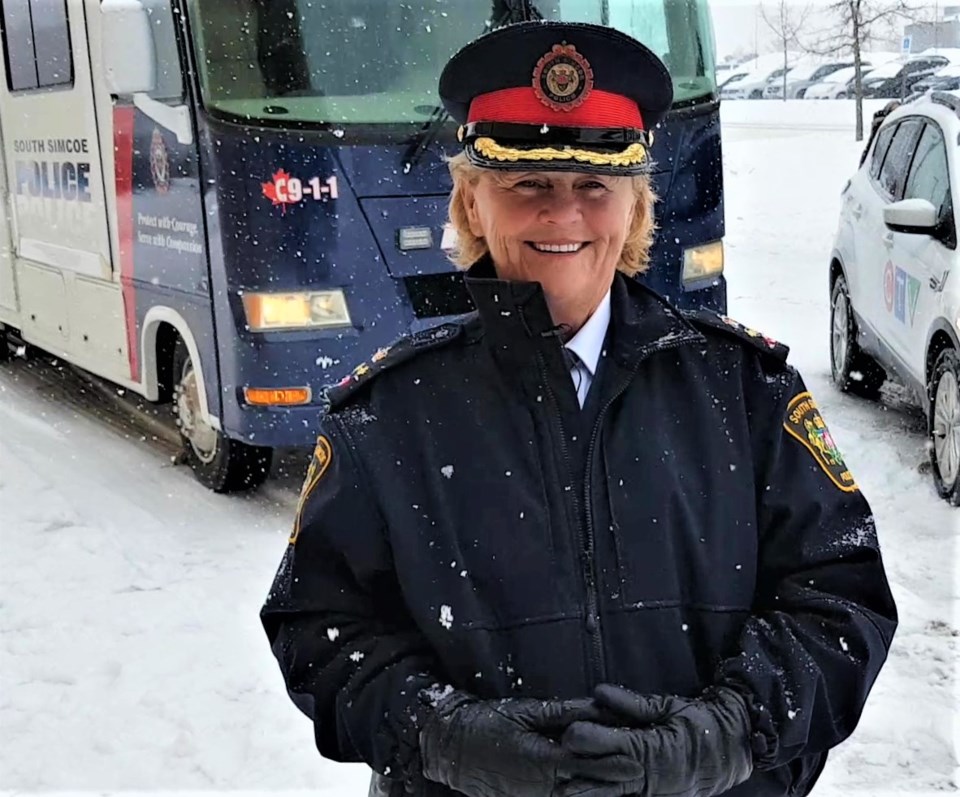The number of landlord-tenant disputes that South Simcoe police responded to increased by more than 50 per cent during the COVID-19 pandemic when compared to the same time last year.
Deputy Chief Robin McElary-Downer said the service has been tracking different types of calls and comparing them with last year’s numbers to see what effect the COVID-19 pandemic is having on crime.
“You can see how COVID-19 has spread its tentacles to so many areas,” McElary-Downer said.
Fraud, domestic incidents, mental-health calls and bylaw responses are all up, but so are landlord-tenant disputes, according to the South Simcoe police.
“We realized that people were out of work and many people were going to be losing their jobs — how are they going to pay for their rent?” McElary-Downer asked. “It was a statistic that interested us.”
According to data from the South Simcoe Police Service, officers responded to 46 calls about landlord-tenant disputes between March 15 and Aug. 24 in 2019. That increased to 85 over the same period this year.
“It certainly is alarming,” the deputy chief said.
McElary-Downer said one recent dispute involved a tenant who came home to find their apartment cleared out and their belongings in the garage.
“It had to deal with inability for the tenant to pay their rent,” she said. “Nobody’s a winner here, because the landlord has bills to pay. It's just a vicious, vicious circle.”
South Simcoe police leave the resolution of such disputes to the Landlord Tenant Board (LTB), but they attend dispute calls like the one mentioned by the deputy chief to give guidance and mitigate arguments.
The province placed a moratorium on residential evictions and non-urgent eviction hearings and orders when the pandemic began, but, on Aug. 4, the LTB started processing non-urgent eviction applications and hearings again.
An N4 notice, or “notice to end your tenancy early for nonpayment of rent,” is issued by landlords directly to tenants, so the LTB can’t track the number that have been issued. However, if a landlord follows up with the LTB and files an L1 eviction application, an application to evict a tenant for nonpayment of rent and to collect rent the tenant owes, the LTB can track that.
Across the province, the LTB processed 6,635 L1 applications between March 17 and July 31, 2020. The LTB notes that processing an application does not mean that a hearing or eviction has happened.
Over the same period last year, 16,994 L1 applications were processed by the LTB. The suspension on non-urgent eviction hearings and orders was not in place during that period, which could explain the difference in number of applications processed.
Locally, there are about 22 eviction orders pending with the sheriff’s office in Barrie, which enforces eviction orders issued by the LTB and writs of possession signed by the Superior Court of Justice (SCJ).
“Unless the LTB or SCJ ordered otherwise, enforcement offices began in August to schedule pending evictions, deliver notices to vacate (providing tenants and occupants five business days to vacate the premises), conduct health and safety risk assessments, and determine whether any tenants/occupants have voluntarily vacated,” a spokesperson for the Ministry of the Attorney General wrote. “Since then, a total of 36 evictions have been executed in Simcoe County.”
McElary-Downer said she is hopeful the landlord-tenant dispute trend seen in South Simcoe gets better and that people are able to work and pay their rent.
“I hope it doesn't increase, but we are not back to normal,” she said.
Shane MacDonald, Local Journalism Initiative Reporter, Barrie Advance



